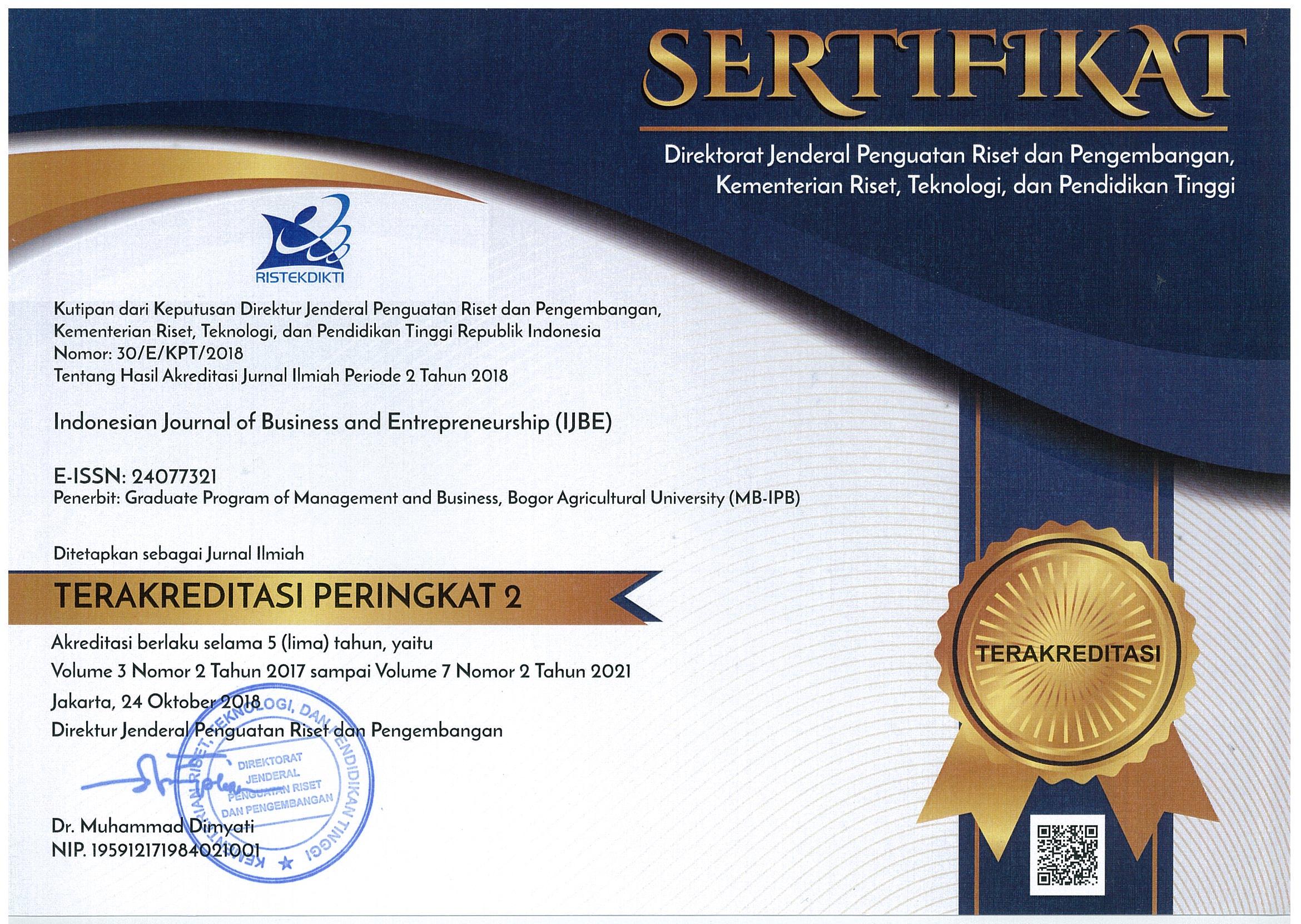Key Success Factors of Startup in Business Incubation at Business Incubator IPB University
Abstract
Background: Nowadays startups are no longer a thing. Startups are mushrooming and attracting much attention both nationally and internationally. Business incubation activities are essential for startups, because many startups that have yet to have time to develop but have to stop running their operations.
Purpose: This study aims to analyze the success of startups in business incubation and the key success factors of startups in business incubation at the IPB University Business Incubator.
Design/methodology/approach: They use the quantitative comparison method and interpretive structural modelling (ISM).
Findings/Result: The results showed that the incubation program can increase sales, production capacity, and the number of employees. In the ISM analysis results, dependent factors include startup selection, commercialization process, product excellence, and implementation capacity. Connecting factors include innovative capacity, monitoring, team management, startup resources, internal startup culture, innovation ecosystem, communication, and information technology. Business incubator technical support and startup founder leadership are independent factors. Network capacity and business intelligence are the most influential.
Conclusion: Thus, the IPB University Business Incubator effectively improves startup performance, and the key success factors in accelerating startup growth are network capacity and business intelligence.
Originality/value (State of the art): This is the first time anyone has used the ISM method to illustrate the relationship between these factors and analyze the impact of business incubation on participants.
Keywords: business incubators, business ecosystem, ISM, key success factors, startups growth








